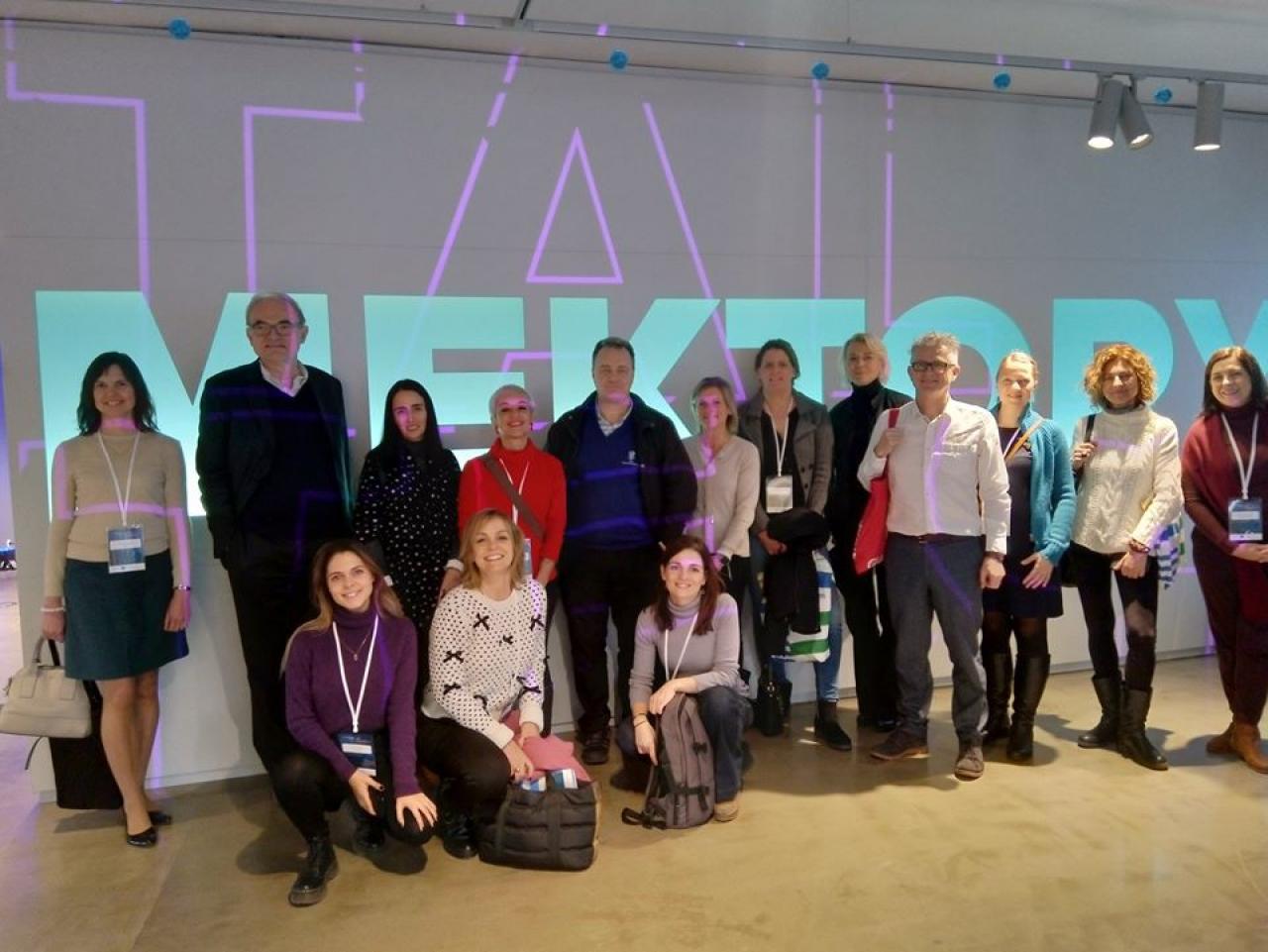
Along the first week of December, 3rd, 4th and 5th, Tallinn (Estonia) hosted the fourth Transnational Meeting. The six ON BOARD cities gathered once again to work with different stakeholders and exchange the advances in the transference of their Education Innovation Networks.
The stakeholder analysed on this occasion were non-formal education organisations as well as other local entities and associations and how they can contribute to extend learning beyond school walls and hours, fulfilling the 360º Education approach: everybody educates everywhere and at any time in the city.
By local entities, ON BOARD refers to a large group of local agents that intentionally or unintentionally contribute to educating children and young: Youth and sports clubs, after-school organisations, leisure entities, environmental and cultural institutions -museum, arts, libraries…-, volunteer organisations, cooperatives and social enterprises, civic and community organisations (neighbourhood, elderly…), training and skills-development associations, etc. All these stakeholders have an influence on children and young at different education moments of their lives. Some contribute to develop specific skills but, in general terms they help promote the values of citizenship and co-responsibility; they strengthen children’s personal abilities, communication skills and creativity. All this has an impact in their personal wellbeing and at the same time creates better job opportunities.
The Educational Innovation Networks can leverage the potential of their experience to improve quality education in the city, promote social values, strengthen capacities not usually taught in the school, and create personal bonds with the communities they live in.
Entities from all the different cities were invited to Tallinn to attend to the sessions and discuss how they collaborate in the education process and how they can get involved through the Educational Innovation Networks.
Apart from looking to partners’ experience, ON BOARD partners also had the chance to see other external cases. Peter Ulholm, an URBACT expert and Consulting Director of LearnLab, gave us reasons on why involving local entities do have positive impact on the students and why working with local entities can open for new approaches to learning. Ulholm also showed us the main steps cities should follow to organize the cooperation of the school and the local entities. There were not only interesting advices but also useful for all the participants as some of them are part of the entities from each city.
Being in the halfway of the project, and following URBACT Programme instructions, Tallinn meeting was also devoted to analyse the transfer journey and assess the progress made in the partner cities. Although each city has different needs, paths, situations and capacities, they all share the will to adapt the Education Innovation Network which is fundamental for the continuing progress and procedure of the project once the ON BOARD project is finished.
Despite the cold weather, Tallinn received us with warm and innovative ideas; we were able to discover some of them at the Mektory campus, an amazing and inspirational visit to Technology University.
As in each TM, we come back home with many lessons and good advices we can implement in our cities and EINs.
“There is always a lot to learn from other countries and it challenges our own structures and approaches. That knowledge can only be reached through interaction with other people, technical solutions are not the answer to everything after all.” (Sapna Diar – Local On Board Group of Halmstad).
“The high quality of organization and welcoming gave us the opportunity to share ideas and experiences in a very confident atmosphere. The city of Tallinn put also a lot of energy in gathering a large scope of local stakeholders of the « educative community » to give us the chance to meet them.” (Cecile Moisdon - Local On Board Group of Nantes).
Find here the TM4 Report with the main conclusions and learnings.
